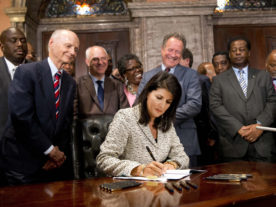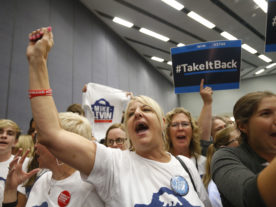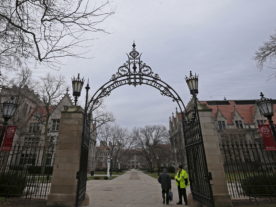By now, we all know there’s a significant gender gap — that women earn less money than men even when doing the same work.
In 2016, women earned an average of $40,675, far less than the $50,741 for men, according Lynda Laughlin of the U.S. Census Bureau.
The bureau finds that the gender gap is largest in fields dominated by men, such as when it comes to being the chief executive of a company. While male CEOs make an average of $141,000 annually, women in the same job picked up about $104,000 — that’s 73 percent of what the guys earn for doing the same work, according to the American Community Survey.

Graphic — US Census Bureau
Other professions where the gap is most significant include sales and finance. For example, male financial advisors are paid an average of $102,000 while women in the same field end up with $69,000. That means the women are earning about 70 cents for every dollar a man makes.
Many of the highest paid jobs for women, including physician, surgeon, nurse anesthetist and dentist, are in health fields.
The gender gap between men and women is lowest among pharmacists, where the women earn 97 cents for every dollar their male colleagues make.
Even the best education can’t close the void.
In fact, an analysis of numbers from the U.S. Department of Education finds that the disparity might even be wider for men and women who are graduates of America’s most elite universities.

The average man in that study pulls in a salary of $59,000 soon after graduating, but his female counterparts make 19 percent less, earning about $48,000. Of the 117 top-ranked colleges in the analysis, women came out financially on top in only three schools: Yale University, Clark University, and Stevens Institute of Technology. Female graduates earn less than males for all of the other schools, and often by a significant amount.
The 10 universities where the pay gap is most significant include some of the nation’s most prestigious. At No. 1 is Stanford University, where women graduates end up earning $36,000 less than their former fellow male students. Also on the list are Princeton, Harvard, MIT and Duke University.
Overall, the pay gap has narrowed in the last 50 years, according to the Census Bureau’s Laughlin, due in part to the increasing presence of women in the work force and their attainment of higher levels of education.






















